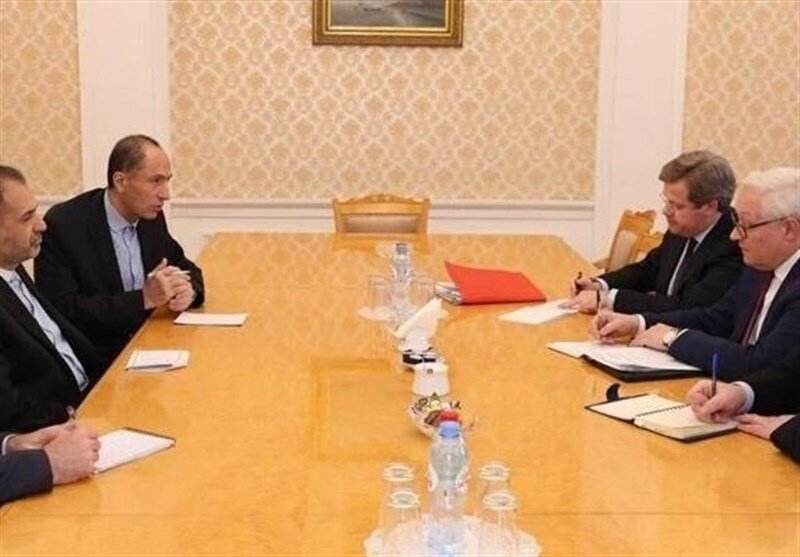Iranian, Russian diplomats discuss nuclear agreement

TEHRAN – Iranian ambassador to Moscow Kazem Jalali and Russian Deputy Foreign Minister Sergei Ryabkov have met to discuss the latest developments surrounding the 2015 Iran nuclear deal, officially known as the Joint Comprehensive Plan of Action (JCPOA).
“(The two sides) exchanged views on the situation around the Joint Comprehensive Plan of Action on the Iranian nuclear program. They highlighted the importance of further coordination of efforts of all its parties for the sustainable implementation of the agreement in accordance with UN Security Council Resolution 2231,” the Russian Foreign Ministry said in a statement on Friday, Tass reported.
The two sides also discussed some other issues of mutual interest, the statement said.
In 2015, Iran signed the JCPOA with China, France, Germany, Russia, the United Kingdom, the United States, Germany and the European Union. It required Iran to scale back its nuclear program and severely downgrade its uranium reserves in exchange for termination of sanctions, including lifting the arms embargo five years after the deal’s adoption. In 2018, the United States abandoned its conciliatory stance on Iran, withdrawing from the JCPOA and implementing hardline policies against Tehran.
Following the U.S. withdrawal, Russia and China strongly opposed the U.S. unilateral measures against Iran and supported efforts to preserve the JCPOA.
Last month, Russian Foreign Minister Sergey Lavrov said Moscow and Beijing reject American attempts to dismantle the most important international agreement for the world, which was approved by UN Security Council Resolution 2231.
The Russian foreign minister stressed that both countries do not tolerate the illegitimate unilateral actions of the United States in connection with the situation around Iran’s nuclear program.
At the end of a two-day visit to Russia a few weeks ago, Iranian Foreign Minister Mohammad Javad Zarif said Iran and Russia need to constantly hold talks, calling Moscow one of Iran’s “strategic friends”.
“We need to have constant and continued talks with the Russian friends given the regional and international circumstances as well as our bilateral relations,” Zarif remarked.
The visit came amid soaring tensions between Iran and the U.S. over the White House’s unilateral move in announcing the return of all previously terminated UN sanctions on Tehran. All current JCPOA participants, particularly Russia and China, and almost all non-permanent members of the UN Security Council strongly rejected the U.S. measure.
MH/PA

Leave a Comment